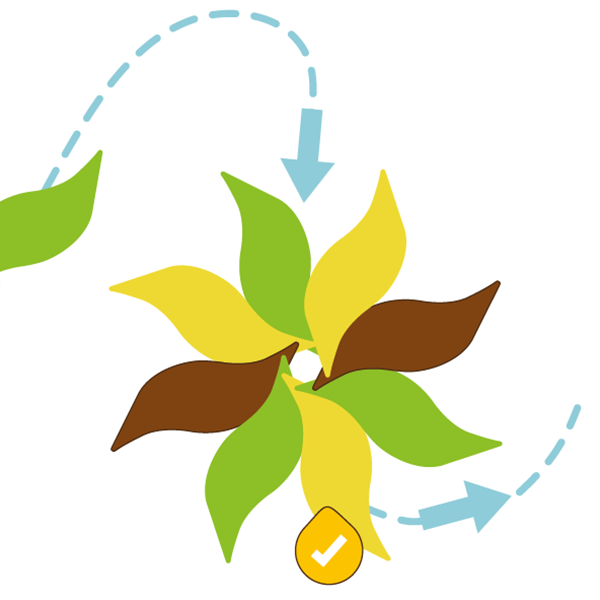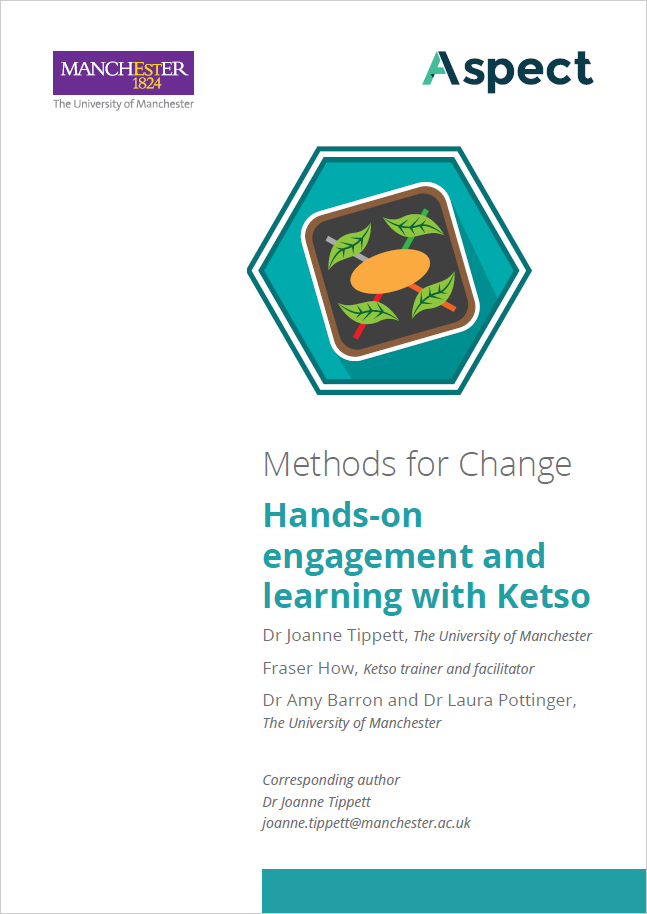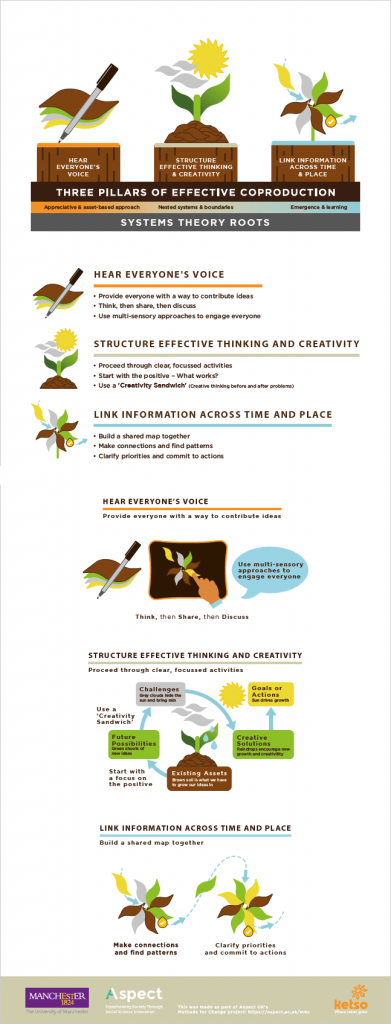Research Method: Hands-on engagement and learning with Ketso
Ketso is a physical tool for creative engagement and learning that promotes effective participation. This handson kit is designed to make it easier for anyone to run an effective and engaging workshop. The word ’ketso’ means ‘action’ in Lesotho, where Joanne Tippett invented the toolkit in the mid-1990s. Built around a metaphor of growth, the physical kit is based on the imagery of a tree, consisting of a trunk, branches and colourful leaves, which participants write on, then add to the felt workspace. This physical kit is animated with a series of questions and processes to share ideas. Ketso is a catalyst for discussion, enabling people to learn from each other and see different perspectives. Using the kit makes sure everyone’s voice is heard and helps to structure effective thinking.
Ketso can be used in a range of settings, from one-to-one and small group discussions, to large workshops with hundreds of people. This participatory toolkit has been used to engage stakeholders in contexts as diverse as the environment, health and wellbeing, community development, education and business. During the COVID-19 pandemic, this face to face toolkit has been adapted for use in in remote and hybrid settings. Each person has their own individual kit and develops ideas before discussing them in digital breakout rooms. Pictures of the completed Ketso felts can be shared via tools such as Padlet. Ketso Connect is also being used as a method to encourage student engagement and structure work on assignments in higher education.
You can find all the research outputs from the Methods for Change series here







